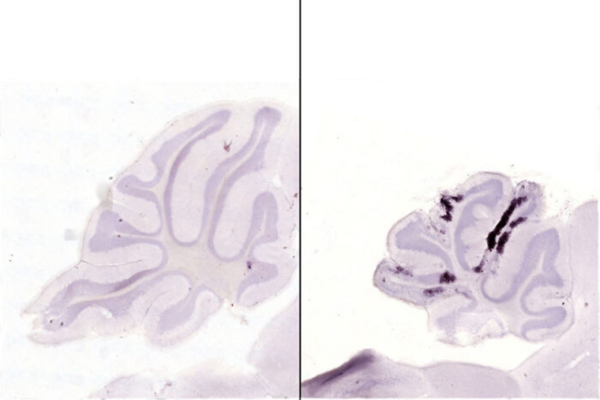New center promotes healthy workplaces
The School of Medicine’s Healthy Work Center facilitates research to promote the health of working-age people by focusing on topics such as diet and exercise, cancer prevention and injury avoidance. It’s a rebooted version of the Occupational Safety and Health Research Lab.
Physicians visit during Africa Initiative’s inaugural faculty exchange
Two physicians from the University of Ghana recently wrapped up a monthlong visit to Washington University in St. Louis as part of the Africa Initiative’s faculty exchange.
Battling treatment resistant opioid use disorder
Similar to treatment resistant depression, there is a subpopulation of those addicted to opioids who do not respond to standard opioid use disorder treatments. In a new paper, an addiction expert at the Brown School at Washington University in St. Louis suggests a new category for these types of patients: treatment resistant opioid use disorder.
Why Zika virus caused most harmful brain damage to Brazilian newborns
Researchers at Washington University School of Medicine in St. Louis have found that the strain of Zika that circulated in Brazil during the microcephaly epidemic that began in 2015 was particularly damaging to the developing brain.
From the front lines of the new opioid crisis
More powerful than morphine, fentanyl killed pop-music icon Prince in 2016. Alum Ben Westhoff investigates how it gets to America, how it got so popular and what we can do to save lives in his new book.
Being raised by grandparents may increase risk for childhood obesity
Grandparental child care is linked to nearly a 30% increase in childhood overweight and obesity risk, finds a new analysis from the Brown School at Washington University in St. Louis.
New book lays out social work’s agenda for 21st century
Including the insights of more than 35 leading social work scholars from the Brown School at Washington University in St. Louis and beyond, a new book grapples with 13 key areas in the profession in an effort to identify innovative solutions toward achieving a “livable life — a life in which individuals are able to thrive and reach their full potential.”
Why health insurance in rural communities is so expensive
Small risk pools may contribute to the challenges faced by private insurance plans in rural areas, in which case risk reinsurance, or insurance for the insurer, is a potential policy solution, finds a new study from the Brown School at Washington University in St. Louis.
HIV treatment innovation leads to better lifetime choices, study finds
Domestic violence and illicit drug use plummeted among women who realized they could live decades longer than they’d expected because of a new HIV treatment, according to a new study involving a Washington University in St. Louis health care-innovation researcher.
What’s behind the decline in outdoor play?
Mothers in low-income neighborhoods report more physical and social barriers that discourage them from allowing their children to play outside, according to new research from the Brown School at Washington University in St. Louis.
Older Stories









